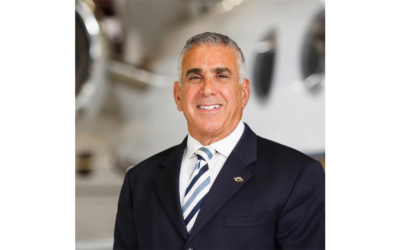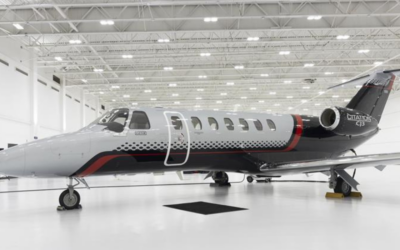
BWH’s Larry Cuculic talks…
- What hoteliers want in times of economic tumult
- Development strategy for a multi-brand company
- How inflation concerns translate to
property-level pricing
With more than 4,200 hotels worldwide, Best Western parent
BWH Hotels has watched closely the turns of the global economy and U.S.
economic policy this year, and though government and some business travel has
softened, demand from small and midsized enterprises remains solid, CEO Larry
Cuculic told BTN managing editor Chris Davis last week at New York
University’s annual International Hospitality Investment Forum in New York.
Cuculic also talked about the real effects of inflation, the status of hotel
staffing and the effect of economic turbulence on long-term planning. BWH SVP
and chief development officer Brad LeBlanc joined for a discussion of
development. Edited excerpts follow.
BTN: There’s been lot of moving parts so far this
year. What’s topping your list of priorities now?
Larry Cuculic: Supporting hotels and driving revenue
to hotels. When there’s turbulence in the economy and consumer confidence, I
think our focus should be on the success of our hotels, and that’s driving
revenue to them and supporting them, because businesses love consistency. They
love knowing what the future holds, and when there’s that uncertainty, what you
need to do is support their confidence in the market. And you do that by
driving revenue to them and encouraging them to leverage the programs you’ve
put in place for them, like revenue management and guest management systems,
and create that confidence that they’re going to do well, and they will.
BTN: How has that gone in this market?
Cuculic: Well, we’re outperforming the market. We’re
indexing above the industry [in revenue per available room], and I think that’s
a result of several things. We’re a very strong leisure brand, and so if you
see a drop in business travel or government travel, it’s less impactful on us. We’re
not heavily reliant on any one channel or any one delivery system. We have that
balance that I think is important for us.
BTN: What’s your current assessment of how the market
stands right now and what the effects of everything that’s happened might be?
Cuculic: The University of Michigan on [May 30]
announced their most recent consumer
confidence index, and it was the first time it stabilized in 2025. That’s a
good thing. I think it shows that consumers are now recognizing that this too
shall even itself out over time. You just have to give it time. I think
consumer confidence is now recognizing that you have to believe in the long
term, not just short-term daily bits of news. Consumers are resilient.
Consumers will always want to travel. And stability I think is returning. Even
between, say, the beginning of April to the beginning of June, you’re seeing a
difference.
SMEs don’t cut as quickly as the large corporations might, because they’re still doing business the way they have to do business. The small and medium enterprise business has not been, I think, as impacted as large corporate business travel.”
BWH’s Larry Cuculic
BTN: How about your hotels? How have they
been reacting to all of this thus far, and has that changed over the last two
months or so?
Cuculic: No, I don’t think they have. Every spring we
go out to our members, our hoteliers, with regional meetings. We had regional
meetings in late April and May in Vegas, Chicago and Myrtle Beach. And they’re
all positive. They really are. There’s positive sentiment, and again it goes
back to: If our sole mission is driving hotel success, if you drive revenue to
them and support them and create programs where you can help them operationally
and operate more efficiently, their sentiment is positive.
BTN: How has business travel and government travel
looked for you in 2025 so far? And what’s your outlook?
Cuculic: Government travel of course has decreased,
and that’s not because of our brands, it’s because the
government has decided they’re going to cut back on travel. The government
is not any different than any business: One of the easiest things to reduce
expenses on is travel. … We’ve seen a decrease in government travel just like
everyone else.
When there’s noise in the economy, I think CEOs likewise can
turn conservative, and they have. But again, it doesn’t impact Best Western
Hotels as much as it might others, because while we have that as a strong base
of business, it’s not the vast majority of our business. When that weakens, it
impacts us, but not to the effect it does others.
The other thing is, we’ve been focused on small and medium
business enterprises through our Best Western Business Advantage program. They
don’t cut as quickly as the large corporations might, because they’re still
doing business the way they have to do business. The small and medium
enterprise business has not been, I think, as impacted as large corporate
business travel.
BTN: You’re seeing a difference in approach between
SMEs and large corporates now?
Cuculic: That’s right, because a lot of [large
corporates] are dependent upon government business, right? The large corporate
industry relies on government, and if they’re wary that government spending’s
going to go down, they may become more conservative before small and medium
enterprises that are focused on more of a niche business.
BTN: Is this something you see as temporary, or does
the change in business travel and government travel demand affect your strategy
for the rest of 2025 and beyond?
Cuculic: We’ve not seen anything that has changed our
long-term strategy, including 2025 strategy. We are staying the course. It has
not impacted us such that we need to change how we’re conducting business,
although we will make sure we’re staying strong and connected in the small and
medium business enterprise.
BTN: Do the changes
in economic policy change anything in terms of growth strategy?
Brad LeBlanc: On a macro level, no. … We have 18
brands, and all 18 of those brands can’t be firing engines at any given time.
But that’s the great news about a brand family: We have brands depending on
what that mindshare is currently, and that mindshare is driven by the economic
environment that’s operating. If debt is readily available, new construction
will take a front seat. If it’s not, conversions will take that front seat. So
we see the opportunity despite the circumstances and the noise.
BTN: How does that translate on the micro level?
LeBlanc: You drill down into what brands are active,
what segments are active. Certainly, extended stay outperforms everything else.
The majority of rooms under construction in this country today are extended
stay, two to one over everything else. So we have to make sure that we’re
servicing, we’re building, we’re putting those in the right markets and we’re
following developers to that goal, which is to grow their company.
BTN: Staffing has been a
key concern since the pandemic. Is that still a primary concern for Best
Western?
Cuculic: I think hoteliers always have concerns about
labor, quality of labor and the price of labor. Government policies related to
labor have all put pressure on the labor industry, but our hoteliers have
adapted. When they come to a [Best Western] meeting, they don’t say that labor
is their No. 1 concern. Keep in mind as well, our hotels are independently
owned and operated. They’re primarily small business operators. I think they
have found that if they establish themselves as an employer of choice in their
community that they will get the labor that they need. It’s about not just
hiring people, but it’s about being a part of a community.
BTN: What is their No. 1 concern?
Cuculic: By far, operating costs. Labor might be a
part of that, but then they also have inflation on food products. Inflation
affects things like electricity and energy, paper products, distribution costs,
insurance.
Insurance was a big one. We
launched a property insurance program. We’re the only brand in the industry that
has a program where we insure the properties themselves. We heard a lot from
our hoteliers about the cost of insurance, especially in the Florida or
California areas where you had wildfires and hurricanes. We now insure the
properties themselves through a program where we help underwrite the insurance
that they obtain themselves. And hoteliers absolutely love it. You’re talking
about saving $30,000 or $40,000 a year on insurance because we are the insurer.
BTN: There’s not much you can do about inflation, but
are there other initiatives at the corporate level you can take?
Cuculic: Sure. We launched a guest management
platform that interacts with the guest: If the guest needs something, it
notifies the front desk or housekeeping, they can deliver it, boom, check it
off. So interactions with the guests have become easier. It also allows for
pre-check-in, which takes pressure off the front desk. It’s all those little
operational things that can help alleviate labor costs as well.
Last year our members voted to leverage our buying power
through endorsed supplier programs for all of our breakfast items as well as
operating supplies and equipment. So we’re leveraging our buying power and any
of the savings go back to our hoteliers, and we’re leveraging a relationship
with Amazon as a buying partner. We don’t require that you buy a specific brand
of water, but we specify the quality parameters associated with it, and Amazon
helps us by going and figuring out what’s the best product at the best price.
Recent Posts
- Premier Aircraft announces it has been appointed as the North American Platinum Distributor for New Diamond Aircraft Parts
- Jet Access welcomes aviation industry veteran David Deitch as Executive Vice President of Sales
- Daher’s environmental efforts are recognized with a “Leadership” rating from the CDP organization
- EAA announces air show performers for AirVenture Oshkosh 2026
- Cessna Citation CJ3 Gen2 enters service with first customer delivery







Recent Comments